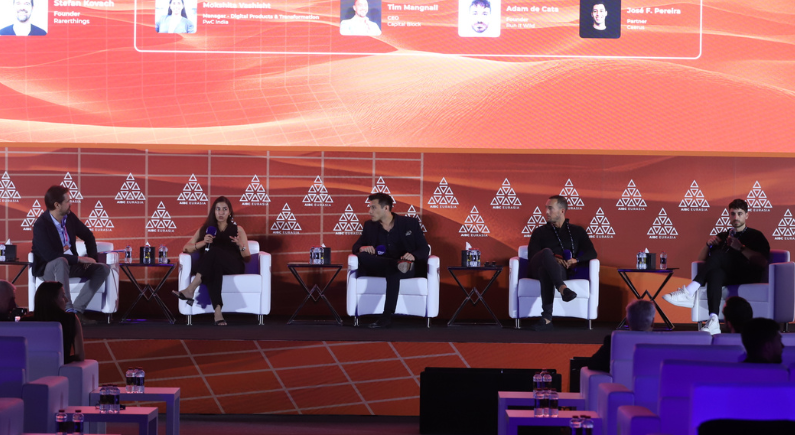Revolutionising Fan Engagement: Web3’s Impact on Sports

Industry experts delved into the transformative power of Web3 technology in reshaping the landscape of fan engagement in sports at the AIBC Eurasia 2024 held in Dubai.
Stefan Kovach, Founder of Rarerthings, moderated a panel entitled “Leveraging Web3 for fan engagement in sports.” The discussion saw professionals from diverse sporting backgrounds offering insights into the evolving dynamics between fans, teams, tournaments, and athletes.
Diversifying revenue stream with Web3
Mokshita Vashisht, Manager for Digital Products and Transformation at PwC India highlighted a pivotal shift in revenue streams within the sports industry.
“Traditionally, we’ve seen these sports franchises and clubs limited to making money out of ticketing or sponsorships, like a very limited stream,” Vashist said. “And with Web3 coming into [the] picture, I see the stream diversifying.”
Vashisht emphasised the emergence of new channels and monetization avenues, capitalising on the expansive reach of fan bases.
“That’s really where I see an opportunity out there for the sports industry and fan engagement coming together.,” she said.
Challenges in utilising Web3 for sports fan engagement
Meanwhile, Tim Mangnall, CEO of Capital Block, emphasised the abundant opportunities presented by Web3 but underscored a critical challenge: execution.
“I think the biggest problem in Web three and sports at the moment is the execution of it by sports clubs themselves,” Mangnall said.
Mangnall stressed the importance of aligning the visions of Web3 experts with the engagement strategies of sports organisations.
“For me, the number one problem why we’re not seeing adoption of Web3 across the board is because fans aren’t being spoken to in the right way,” he elaborated.
Generational change among sports fans
José Pereira, Partner at Caerus, contextualised the shifting dynamics of sports consumption, particularly among younger generations.
Highlighting the prevalence of digital entertainment over traditional sports viewership, Pereira underscored the challenge for sports entities reliant on broadcasting and sponsorship revenues.
“Gen Z, Gen Alpha, they consume cultural sports, entertainment, gaming in a different way than previous generations, so what that means is that now you have more kids that spend time playing FIFA than watching live sports,” Pereira said.
“The problem is that the business models of sports teams and leagues are predicated on how much attention you’re getting because that’s your marketing dollar – the way that they make their money is [through] broadcasting rights, licensing, and sponsorships,” he said.
He outlined the potential of Web3 to disrupt the traditional value chain by enabling direct engagement and monetization between sports entities and consumers, bypassing intermediaries.
“In sports, same as in every other industry, you have [a] value chain from how sports is financed, produced and distributed, all the way to how it is consumed, done and monetized. So, when we look at Web3, I think you focus on the financing side.”
Importance of strategic alignment
Adam De Cata, Founder of Run It Wild, emphasised the need for strategic alignment between consumer engagement, financial backing, and technological innovation.
De Cata advocated for experimentation and flexibility in adapting to the evolving preferences of both crypto-native and traditional fan bases, without imposing financial barriers on exploration.
“I think that there’s always this balance between those that are crypto native that appreciates different types of technology than someone that’s trying to understand the value of a digital asset from the get-go,” he said.






